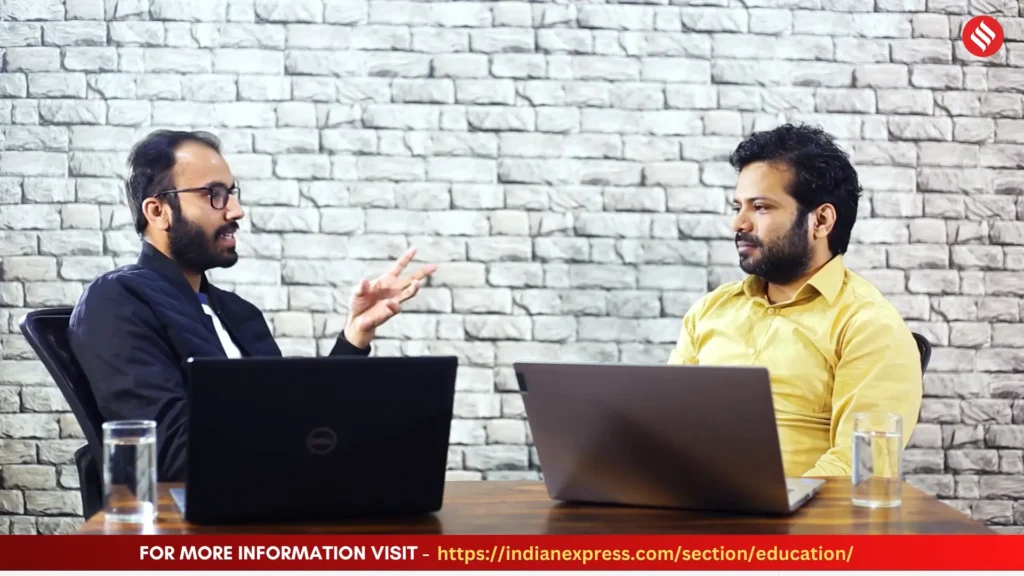Best UPSC Offline and Online Coaching Classes in Delhi
We are the premier choice for UPSC candidates in Delhi, providing both offline and online learning opportunities with outstanding faculty and an abundance of educational resources to assist you in succeeding in the UPSC exam.
Send Enquiry
Renowned faculty
On-time course completion
Exclusive study materials
About UPSC
The Union Public Service Commission (UPSC) examination is a competitive exam that requires thorough preparation and strategic guidance. DarshIAS offers a comprehensive program to help students succeed at every stage of the UPSC exam. For more information of UPSC https://upsconline.nic.in/
Exam Structure
Preliminary Exam:
-
Paper 1- General Studies
Paper 2- General Stuies 2 (CSAT) -
Paper 1- 200 marks with 100 questions.
Paper 2- 200 marks with 80 questions
Mains Exam:
- In this stage, there are 8 exams: 7 exams of 250 marks and 2 exams of 300 marks
- It includes 4 general studies papers (GS1, GS2, GS3, GS4), 1 essay, and 2 language paper, and 2 optional subjects.
Personal Interview:
- This stage is worth 275 marks.
- Marks from the Mains and the interview are combined to create the final merit list.
How DarshIAS Supports UPSC Aspirants
At DarshIAS, we focus on providing detailed coverage of the syllabus and repeated revisions to ensure a deep understanding of the material. Our approach helps students clear the Preliminary exam and excel in the Mains exam, which emphasizes detailed answer writing.
Key Features of DarshIAS
Interactive Classes
We offer classes in both English and Hindi to ensure that students understand and retain the concepts.
Current Affairs
We provide a monthly booklet focused on current affairs, which is crucial for both the Prelims and the Mains exams.
Answer Writing Practice
Regular sessions are conducted to improve students' answer writing skills, which is essential for scoring well in the Mains.
Course Offerings
Comprehensive UPSC Classes
Covering both Prelims and Mains.
UPSC Foundation Classes
Covering Prelims, Mains, and Interview Preparation.
UPSC Syllabus Overview
Preliminary Exam
General Studies-1
(200 marks) Duration: Two hours
- Current affairs of National and International importance.
- History of India and Indian National Movement
- India and World Geography- Physical, Social, Economic Geography of India and World.
- Indian Polity and Governance – Constitutions, Political System, Panchayati Raj, Public Policy, Right Issues.
- Economic and Social Development – Sustainable Development, Poverty Inclusion, Demography, Social Sector initiatives
- General Issue on Environment, Ecology, Bio-Diversity and Climate Change, General Science.
General Studies-2
CSAT (200 marks) Duration: Two hours
- Comprehension; Interpersonal skills including communication skills;
- Logical reasoning and analytical ability; General Aptitude. (upto Class 10th Level)
Mains Exam
Paper | Subjects | Duration | Marks |
Paper A | Compulsory Indian Language [Hindi] | 3 Hours | 300 Marks (Qualifying) |
Paper B | English | 3 Hours | 300 Marks (Qualifying) |
Paper I | Essay | 3 Hours | 250 Marks |
Paper II | General Studies I → Indian Heritage & Culture, History of India & World; Geography of India & World; Indian Society | 3 Hours | 250 Marks |
Paper III | General Studies II → Polity & Governance; Social Justice; International Relations | 3 Hours | 250 Marks |
Paper IV | General Studies III → Indian Economy & Agriculture; Science and Technology; Environment & Ecology; Disaster Management; Internal Security | 3 Hours | 250 Marks |
Paper V | General Studies IV → Ethics, Integrity & Aptitude | 3 Hours | 250 Marks |
Paper VI | Optional Subject — Paper I | 3 Hours | 250 Marks |
Paper VII | Optional Subject — Paper II | 3 Hours | 250 Marks |
General Studies-1
(Indian Heritage and Culture, History and Geography of the World and Society)
Indian History:-
- Indian culture will cover the salient aspects of Art Forms, Literature and Architecture from ancient to modern times.
- Modern Indian history from about the middle of the eighteenth century until the present significant events, personalities, issues.
- The Freedom Struggle – its various stages and important contributors or contributions from different parts of the country.
- Post-independence consolidation and reorganization within the country.
History of the world:-
- Events from 18th century such as
- industrial revolution,
- world wars,
- redraw of national boundaries,
- colonization, decolonization,
- political philosophies like communism, capitalism, socialism etc. – their forms and effect on the society.
Geography:-
- Salient features of world’s physical geography.
- Distribution of key natural resources across the world (including South Asia and the Indian subcontinent); factors responsible for the location of primary, secondary, and tertiary sector industries in various parts of the world (including India).
- Important Geophysical phenomena such as earthquakes, Tsunami, Volcanic activity, cyclone etc., geographical features and their location – changes in critical geographical features (including waterbodies and ice-caps) and in flora and fauna and the effects of such changes.
Indian Society:-
- Salient features of Indian Society, Diversity of India.
- Role of women and women’s organization, population and associated issues, poverty and developmental issues, urbanization, their problems and their remedies.
- Effects of globalization on Indian society.
- Social empowerment, communalism, regionalism & secularism
General Studies-2
(Governance, Constitution, Polity, Social Justice and International relations)
Polity & Constitution:
- Functions and responsibilities of the Union and the States, issues and challenges pertaining to the federal structure, devolution of powers and finances up to local levels and challenges therein.
- Parliament and State Legislatures – structure, functioning, conduct of business, powers & privileges and issues arising out of these.
- Separation of powers between various organs dispute redressal mechanisms and institutions.
- Structure, organization and functioning of the Executive and the Judiciary Ministries and Departments of the Government;
- pressure groups and formal/informal associations and their role in the Polity. (related to polity & governance)
- Comparison of the Indian constitutional scheme with that of other countries.
- Appointment to various Constitutional posts, powers, functions and responsibilities of various Constitutional Bodies.
- Statutory, regulatory and various quasi-judicial bodies.
Governance:
- Government policies and interventions for development in various sectors and issues arising out of their design and implementation.
- Development processes and the development industry- the role of NGOs, SHGs, various groups and associations, donors, charities, institutional and other stakeholders.
- Important aspects of governance, transparency and accountability, e-governance-applications, models, successes, limitations, and potential; citizens charters, transparency & accountability and institutional and other measures.
- Role of civil services in a democracy.
- Salient features of the Representation of People’s Act.
Social Justice:
- Welfare schemes for vulnerable sections of the population by the Centre and States and the performance of these schemes; mechanisms, laws, institutions and Bodies constituted for the protection and betterment of these vulnerable sections.
- Issues relating to development and management of Social Sector or Services relating to Health, Education, Human Resources.
- Issues relating to poverty and hunger.
International Relations:
- India and its neighbourhood – relations.
- Bilateral, regional and global groupings and agreements involving India and/or affecting India’s interests.
- Effect of policies and politics of developed and developing countries on India’s interests, Indian diaspora.
- Important International institutions, agencies and fora- their structure, mandate.
General Studies-3
Indian Economy-
- Indian Economy and issues relating to planning, mobilization of resources, growth, development and employment. [dynamics]
- Inclusive growth and issues arising from it.
- Government Budgeting. [dynamics]
- Effects of liberalization on the economy, changes in industrial policy and their effects on industrial growth.
- Infrastructure: Energy, Ports, Roads, Airports, Railways, etc.
- Investment models.
- Land reforms in India.
Indian Agriculture-
- Major crops cropping patterns in various parts of the country, different types of irrigation and irrigation systems storage, transport and marketing of agricultural produce and issues and related constraints; e-technology in the aid of farmers.
- Issues related to direct and indirect farm subsidies and minimum support prices; Public Distribution System- objectives, functioning, limitations, revamping; issues of buffer stocks and food security; Technology missions; economics of animal-rearing.
- Food processing and related industries in India- scope and significance, location, upstream and downstream requirements, supply chain management.
Environment & Climate Change-
- Conservation, environmental pollution and degradation, environmental impact assessment.
- Disaster and disaster management.
Science & Technology-
- Science and Technology – developments and their applications and effects in everyday life
- Achievements of Indians in science & technology; indigenization of technology and developing new technology.
- Awareness in the fields of IT, Space, Computers, robotics, Nano-technology, bio-technology
- and issues relating to intellectual property rights.
Security-
- Linkages between development and spread of extremism.
- Role of external state and non-state actors in creating challenges to internal security.
- Challenges to internal security through communication networks, role of media and social networking sites in internal security challenges, basics of cyber security; money-laundering and its prevention.
- Security challenges and their management in border areas; linkages of organized crime with terrorism.
- Various Security forces and agencies and their mandate.
General Studies-4
(Ethics, Integrity and Aptitude)
This paper will include questions to test the candidates’ attitude and approach to issues relating to integrity, probity in public life and his problem solving approach to various issues and conflicts faced by him in dealing with society. Questions may utilise the case study approach {what is case study approach} to determine these aspects. The following broad areas will be covered.
- Ethics and Human Interface:
- Essence, determinants, dimensions and consequences of Ethics in human actions;
- Ethics in private and public relationships.
- Human Values – lessons from the lives and teachings of great leaders, reformers and administrators;
- role of family, society and educational institutions in inculcating values.
- Attitude:
- content, structure, function;
- its influence and relation with thought and behaviour;
- moral and political attitudes;
- social influence and persuasion.
- Aptitude and foundational values for Civil Service ,
- integrity, impartiality and non- partisanship, objectivity, dedication to public service, empathy, tolerance and compassion towards the weaker sections.
- Public/Civil service values and Ethics in Public administration:
- laws, rules, regulations and conscience as sources of ethical guidance;
- Status and problems; ethical concerns and dilemmas in government and private institutions;
- accountability and ethical governance;
- corporate governance
- strengthening of ethical and moral values in governance;
- ethical issues in international relations and funding; .
- Probity in Governance:
- Concept of public service;
- Philosophical basis of governance and probity;
- Information sharing and transparency in government, Right to Information, Codes of Ethics, Codes of Conduct, Citizen’s Charters, Work culture, Quality of service delivery, Utilization of public funds, challenges of corruption.
- Emotional intelligence-concepts, and their utilities and application in administration and governance.
- Contributions of moral thinkers and philosophers from India and world.
- Case Studies on above issues.
- Ethics and Human Interface:
Optional Subjects
- Agriculture, Chemistry, Electrical Engineering, Philosophy, Physics, Management, Zoology, Animal Husbandry & Veterinary Science, Civil Engineering, Geography, Political Science & International Relations, Sociology, Medical Science, Anthropology, Commerce & Accountancy, Geology, Psychology, Law, Statistics, Botany, Economics, History, Public Administration, Mathematics, Mechanical Engineering.
Why Darsh IAS for UPSC, BPSC, & UPPSC in Delhi
Covers All Topics
Our course thoroughly prepares you for the UPSC Examination, covering every part of the syllabus for both the preliminary and main exams in English and Hindi.
Improve Analytical Skills
We emphasize enhancing your ability to analyze topics and write high-quality answers, meeting the standards of the UPSC Examination.
Latest Updates Syllabus
Stay current with the ever-evolving nature and demands of the UPSC Examination through our up-to-date program.
Practical Examples
Understand the connections between different subjects with the help of practical examples.
Regular Class Tests
After each topic, we hold regular subjective and objective tests for both prelims and mains to ensure you’re on track.
Need more reasons?
Focused Study Material
- Comprehensive and Dynamic Approach with newspaper analysis.
- Revised and Updated study material as per the latest syllabus.
- Designed from the examination perspective by well qualified and experienced team of Darsh IAS.
- Focus on effective writing skills in Accordance with CSE pattern.
- Personal Attention to Each Student through dedicated academic coach.
Comprehensive Coverage
- Emphasis on building the fundamental concepts for better understanding.
- Progression from basic to advanced level to aid fresher’s understanding.
- 700+ teaching hours in General Studies Foundation Course.
- 3 hours of classes per day
- Timely Completion of syllabus ensuring adequate time for revision.

Nitish Kumar Singh
UPSC
Rank - 23
Indian Administrative Services
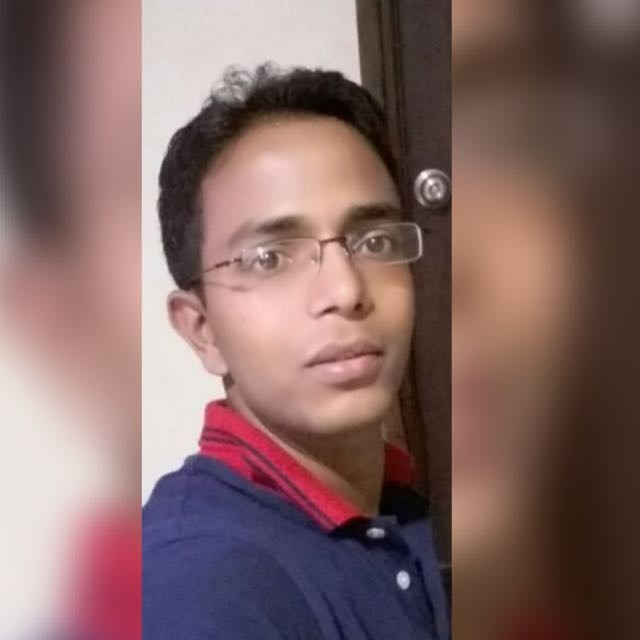
Raj Vikram
UPSC 2021
Rank - 434
Indian Revenue Services

Kumar Kisley
UPSC 2021
Rank - --
IRC - IT

Satyam Tiwari
UPSC 2020
Rank - ---
Indian Postal Services
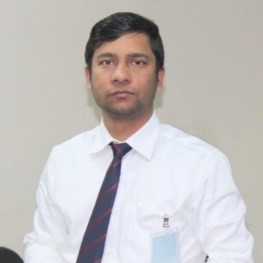
Vinod Kumar
UPSC
Rank - 819
Indian Railways Services

Arif Hussain
UPSC CAPF
Rank - --
Asst. Commandant
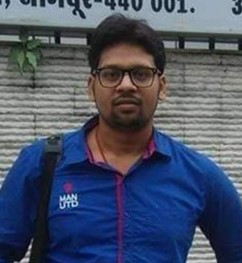
Ajendra Singh
UPSC 2018
Rank - 61
SDM

Kumar Ranjan
BPSC 2020
Rank - 9
District Mineral Officer
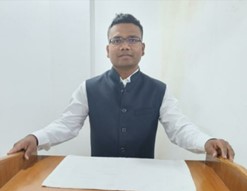
Pradeep Minj
JPSC-2021
Rank - --
DSP

Rahul Uraon
JPSC
Rank - --
Jharkhand Administrative Services
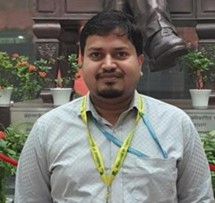
Pawan K. Singh
UPPSC 2020
Rank - 62
DSP

Kanhaiya Kumar
BPSC 66th
Rank - 473
Labour Enforcement Officer
Featured In
Darsh IAS, along with its renowned mentor Sudhanshu Sir, has been featured multiple times in reputed media platforms like Indian Express for its mentorship and the methodology to help students get the best out of them.
UPSC IAS Syllabus For Beginners | IAS Syllabus.
